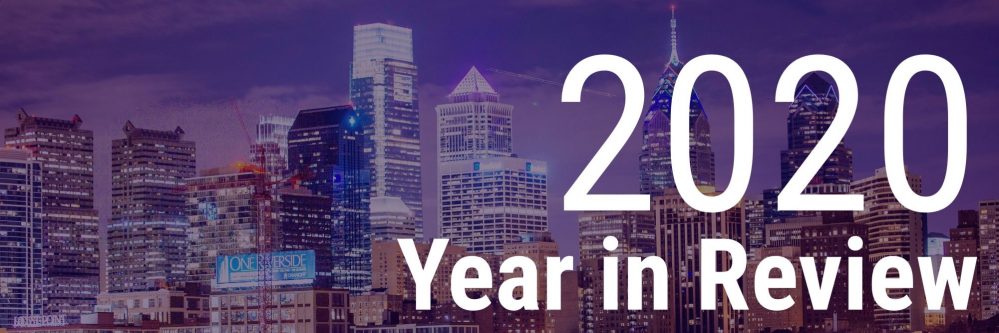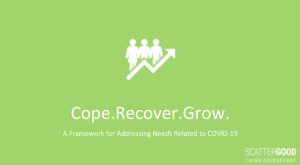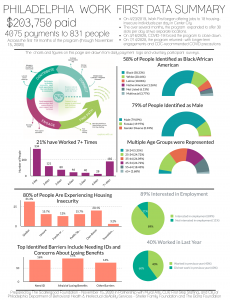Get Involved

 Become a Thought Partner
Become a Thought Partner
Partner with us to produce thought leadership that moves the needle on behavioral healthcare.
 Other options to get involved
Other options to get involved

Thank you!
We received your information and will be in contact soon!
Get Involved

 Grantmaking
Grantmaking
We fund organizations and projects which disrupt our current behavioral health space and create impact at the individual, organizational, and societal levels.
 Participatory Funds
Participatory Funds
Our participatory funds alter traditional grantmaking by shifting power
to impacted communities to direct resources and make funding decisions.
 Special Grant Programs
Special Grant Programs
We build public and private partnerships to administer grant dollars toward targeted programs.
 Program Related Investments
Program Related Investments
We provide funds at below-market interest rates that can be particularly useful to start, grow, or sustain a program, or when results cannot be achieved with grant dollars alone.
Get Involved

 Tia Burroughs Clayton, MSS
Tia Burroughs Clayton, MSS
Learning and Community Impact Consultant
Add some text here
 Alyson Ferguson, MPH
Alyson Ferguson, MPH
Chief Operating Officer
Contact Alyson about grantmaking, program related investments, and the paper series.
 Samantha Matlin, PhD
Samantha Matlin, PhD
Senior Learning & Community Impact Consultant
Contact Samantha about program planning and evaluation consulting services.
 Caitlin O'Brien, MPH
Caitlin O'Brien, MPH
Director of Learning & Community Impact
Contact Caitlin about the Community Fund for Immigrant Wellness, the Annual Innovation Award, and trauma-informed programming.
 Joe Pyle, MA
Joe Pyle, MA
President
Contact Joe about partnership opportunities, thought leadership, and the Foundation’s property.
 Bridget Talone, MFA
Bridget Talone, MFA
Grants Manager for Learning and Community Impact
Add some text here

We started 2020 off fresh with a new Positioning Statement and a commitment to shift the paradigm and practice for behavioral health to recognize the unique spark and basic dignity in every human. Looking back now, it’s clear how critical this guiding frame was in navigating the unending challenges of this year. As 2020 comes to a close (thank goodness), we’re spending some time to reflect on our work.
Just as the year began, the COVID-19 pandemic hit the United States, and with it, health risks, lockdowns, extreme financial hardship, isolation, grief – the list goes on and on. The way we live and work had to change, as did our expectations of ourselves and others.
 With the layered impacts of COVID-19, we knew that mental health would be at risk for all populations. Our Cope. Recover. Grow. Framework guided our grantmaking through the early days of the pandemic as grantees shifted their work rapidly. They moved programs online and worked closely with their communities to support their mental health needs in a time of national crisis. We provided grants to support staff wellness and care for grantee partners as nonprofit staff worked tirelessly to support the communities they serve.
With the layered impacts of COVID-19, we knew that mental health would be at risk for all populations. Our Cope. Recover. Grow. Framework guided our grantmaking through the early days of the pandemic as grantees shifted their work rapidly. They moved programs online and worked closely with their communities to support their mental health needs in a time of national crisis. We provided grants to support staff wellness and care for grantee partners as nonprofit staff worked tirelessly to support the communities they serve.
The Community Fund for Immigrant Wellness came together to provide direct support for immigrant communities, many of whom did not have access to state and federal relief programs. Grantees, funders, and stakeholders of the Community Fund had regular virtual meetings to share challenges, strategies, and support for one another’s work.
The RISE Partnership shifted capacity building training online and Implementation Cohort organizations used skills they gained to make data-driven decisions about programs. We’re pleased to be sharing their stories through an ongoing series of Case Studies.
 As the country continued to grapple with the trauma of the pandemic, the Investing in Community Resilience webinar series provided guidance to hundreds of attendees for integrating trauma-informed care into their work. More than ever, trauma-informed, healing-centered practice would be critical in community care. We also partnered with PIDC and Spectrum Health Services to bring a series of monthly webinars, “Is it Just Me?” Paying Attention to Your Mental Health During the Time of COVID-19 and Civil Unrest.
As the country continued to grapple with the trauma of the pandemic, the Investing in Community Resilience webinar series provided guidance to hundreds of attendees for integrating trauma-informed care into their work. More than ever, trauma-informed, healing-centered practice would be critical in community care. We also partnered with PIDC and Spectrum Health Services to bring a series of monthly webinars, “Is it Just Me?” Paying Attention to Your Mental Health During the Time of COVID-19 and Civil Unrest.
This summer, we saw renewed calls for racial justice following the deaths of Ahmaud Arbery, Breonna Taylor, and George Floyd. These events emboldened our commitment to equity. The Foundation developed a new grant process to support more organizations that are led by Black, Indigenous, and People of Color and to build intentionality around addressing racism. The RISE Partnership moved to dismantle racism in evaluation, and to reckon with the history of program evaluation as a field.
The need to work directly with communities to drive programs became more apparent. A partnership with Listen4Good allowed for The RISE Partnership Implementation Cohort to be trained in key strategies for community engagement and feedback through Feedback Labs. And seven of the Foundation’s nominees were accepted to Listen4Good to understand best practices for feedback from program participants.
 The Foundation also continued to support the implementation and evaluation of Philadelphia’s Same Day Work and Pay program. Following a brief hiatus this year, the program restarted in July with new COVID safety precautions in place and continued to provide same-day, low-barrier employment to individuals experiencing housing insecurity. Since its inception in April 2019, the program has provided almost 850 individuals with opportunities for work and has paid them more than $200,000 in total.
The Foundation also continued to support the implementation and evaluation of Philadelphia’s Same Day Work and Pay program. Following a brief hiatus this year, the program restarted in July with new COVID safety precautions in place and continued to provide same-day, low-barrier employment to individuals experiencing housing insecurity. Since its inception in April 2019, the program has provided almost 850 individuals with opportunities for work and has paid them more than $200,000 in total.
This year also saw a pivotal election. We urged voters to consider mental health at the ballot box and continued to shed light on exceedingly relevant behavioral health policy issues through the Think Bigger Do Good Policy Series. In partnership with the Peg’s Foundation, Patrick P. Lee Foundation, and Peter and Elizabeth Tower Foundation, we released six new papers that provide recommendations on topics like diverting people with serious mental illness from the criminal justice system, improving the mental health crisis system, integrating behavioral health and primary care, and so much more. We also released a new Building Better Systems paper with strategies for improving the peer support specialist workforce.
This year has no doubt been hard on us all. Staying grounded, focused, and motivated remains a challenge. It has also opened up new opportunities and new thinking about how to shape our world. Tracking what’s worked and what hasn’t will be critical to imagining a new future. In supporting Generocity’s TRACE series, we hope to gain insight into building a new future together.
We’re grateful to have worked with you all this year and look forward to the possibilities of 2021.












